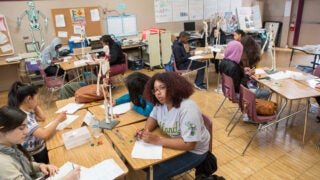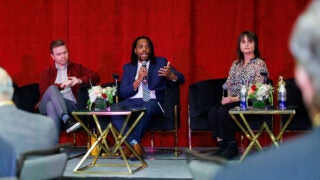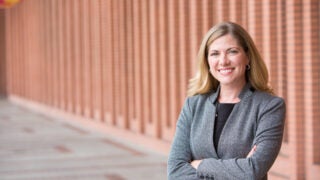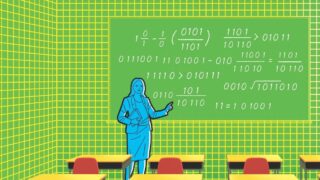USC scientists find that adolescents who grapple with the bigger meaning of social situations experience greater brain growth, which predicts stronger identity development and life satisfaction years later.
Education
News Listing
At annual Research for Impact Conference, over 250 attendees heard from over 80 presenters on research projects across the USC Rossier community.
USC educational counseling student Alexis Linares-Sierra thought college wasn’t for him, but then a community college counselor showed him how to claim his space.
Americans are united on core principles like the importance of public education and parental involvement, but diverge on the details, a new USC study suggests.
Two USC Rossier doctoral graduates opened their hearts — and their school — after the deadly wildfire leveled Lahaina and disrupted education in West Maui.
Gender and technology confidence are factors in the use of AI in education, a new study from the USC Center for Generative AI and Society reveals.
USC experts explain why polarization erodes civility in public discourse, turning private citizens and elected officials into targets.
The USC Rossier center’s mission is to foster equity in educational access, college admissions and outcomes.
After flourishing under the guidance of a community college counselor, USC Rossier master’s student Keily Molina pays it forward.
USC Rossier’s Yasemin Copur-Gencturk is empowering math educators with a scalable, AI-powered professional development program.










